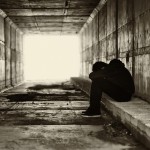“Fighting” or “struggling” against prejudice may be more than a metaphor. The stress that racial discrimination causes African Americans resembles the after-effects of combat on soldiers, according to research from Pennsylvania State University and published in the Journal of Anxiety Disorders.
For the study, researchers analyzed data from the National Survey of American Life. The survey collected information from 5,889 American adults, including 3,570 African Americans, 1,438 Afro-Caribbeans and 891 non-Hispanic Caucasians, about their mental health and discrimination experiences.
Researchers found that more than 40 percent of the African Americans surveyed reported experiencing racial discrimination, and 4.5 percent said they suffered from generalized anxiety disorder (GAD).
People with GAD may experience chronic worry, intrusive thoughts and problems concentrating. The mental health condition is also associated with a variety of symptoms, including distraction, headaches, severe fatigue and ulcers-signs linked to what’s termed “racial battle fatigue,” or the effects of coping with race-related prejudice and bigotry.
In addition, findings showed almost 39 percent of Afro-Caribbeans surveyed reported instances of racial discrimination, but only about 3 percent reported experiencing GAD. Study authors suggested the reasons for the lower number of Afro-Caribbeans who reported GAD might be because this group didn’t share the same history as African Americans and because Afro-Caribbeans defined or responded to racism differently than U.S.-born African Americans.
“The results of our study suggest that the notion of ’racial battle fatigue’ could be a very real phenomenon that might explain how individuals can go from the experience of racism to the experience of a serious mental health disorder,” said Jose Soto, PhD, the study’s author.
What’s more, Soto explained, although racial battle fatigue is not equal to combat conditions soldiers experience, the term reflects “that stress is created in chronically unsafe or hostile environments.”
As Soto summarized, “This is just one instance of how powerful social stressors can impact healthy [mental] function.”
Click here to read about how racial discrimination affects young people’s mental health.






Comments
Comments